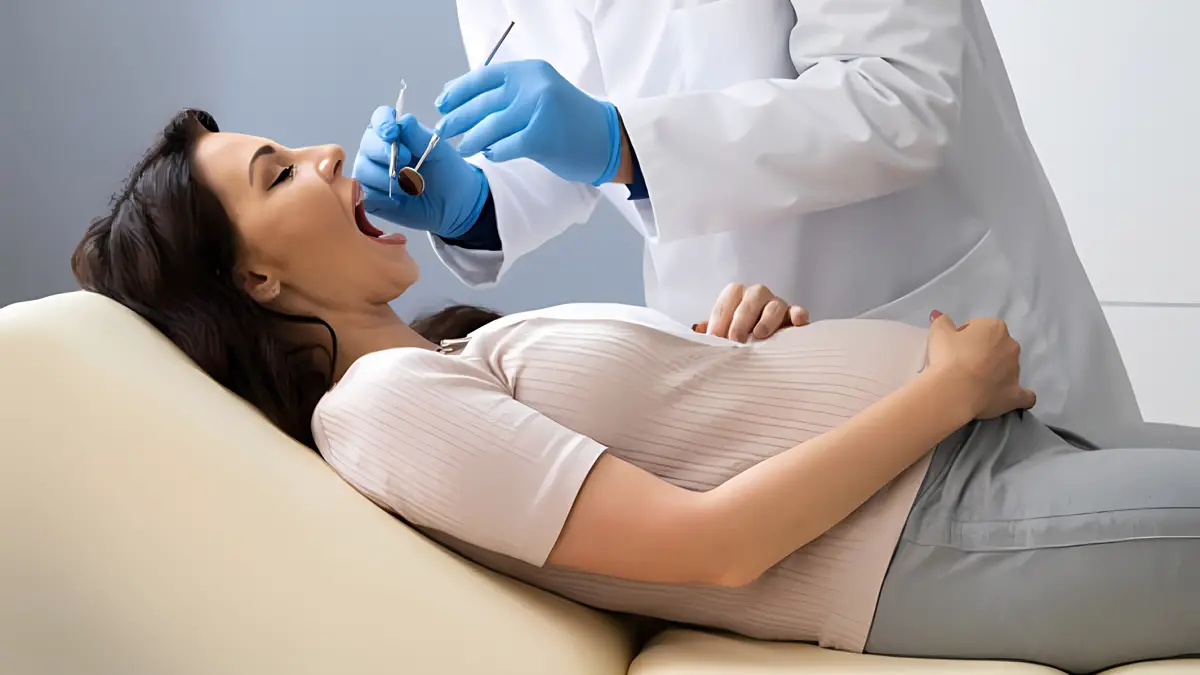Pregnancy is a crucial period in a woman’s life, and it comes with various physiological changes that affect the oral health of the mother. The hormonal changes during pregnancy can make a woman more susceptible to dental problems, including gum disease and tooth decay. Moreover, pregnancy can affect the dental treatment options available to women, as certain procedures may not be safe during pregnancy. This article will provide comprehensive guidelines on how to maintain good oral health during pregnancy and navigate dental treatment options safely.
Importance of Oral Health during Pregnancy
Good oral health is essential during pregnancy, not only for the mother but also for the baby. Oral health issues during pregnancy can lead to adverse pregnancy outcomes such as premature birth, low birth weight, and preeclampsia. Moreover, some studies suggest a link between periodontal disease and preterm birth. Therefore, maintaining good oral hygiene and seeking dental treatment when necessary is critical during pregnancy.
Common Dental Issues during Pregnancy

Pregnancy can increase the risk of dental problems due to hormonal changes that affect the oral cavity. The most common dental issues during pregnancy are:
Gum Disease
Hormonal changes during pregnancy can increase the risk of gum disease. Symptoms of gum disease include red, swollen, and bleeding gums, and can lead to tooth loss if left untreated.
Tooth Decay
Pregnancy can also increase the risk of tooth decay due to changes in diet and oral hygiene habits. Consuming more sugary foods and neglecting oral hygiene can lead to cavities and tooth decay.
Pregnancy Tumors
Pregnancy tumors are non-cancerous growths that develop on the gums during pregnancy. These tumors usually disappear after delivery and do not require treatment unless they interfere with eating or speaking.
🔺 Remember not to brush right after vomiting.
Oral Hygiene during Pregnancy

Maintaining good oral hygiene is crucial during pregnancy to prevent dental problems. Here are some oral hygiene tips for pregnant women:
Brush and Floss Regularly
Brush twice a day with fluoride toothpaste and floss daily to remove plaque and prevent tooth decay and gum disease.
Use Mouthwash
Using an antimicrobial mouthwash can help reduce plaque and prevent gum disease.
Watch Your Diet
Avoid sugary and starchy foods that can cause tooth decay. Instead, consume a balanced diet rich in fruits, vegetables, and calcium.
Visit Your Dentist
Regular dental check-ups during pregnancy are essential to identify and treat dental problems early on. It is safe to undergo dental procedures such as cleanings and fillings during pregnancy.
Safe Dental Treatment Options during Pregnancy

Certain dental procedures should be avoided during pregnancy, while others are safe to undergo. Here are some safe dental treatment options during pregnancy:
Routine Check-Ups and Cleanings
Routine dental check-ups and cleanings are safe during pregnancy and can help prevent dental problems.
X-Rays
Dental X-rays during pregnancy should be avoided, especially during the first trimester. However, if necessary, X-rays can be done with proper shielding to protect the mother and the baby.
Fillings and Root Canals
Fillings and root canals can be safely done during pregnancy, especially if the mother is experiencing pain or discomfort.
Extractions
Extractions should be avoided during the first trimester and only performed if necessary during the second and third trimesters.
FAQs
Sure, here are some additional FAQs related to dentistry and pregnancy:
While getting braces during pregnancy is generally not recommended, it can be done in certain cases. It’s best to consult with your dentist and obstetrician before undergoing any orthodontic treatment during pregnancy.
Yes, morning sickness can affect dental health during pregnancy by exposing the teeth to stomach acid, which can erode the enamel and increase the risk of tooth decay. Rinsing the mouth with water or fluoride mouthwash after vomiting can help minimize the damage.
Some studies suggest that dental problems during pregnancy can affect the baby’s development, especially if the mother has periodontal disease. Maintaining good oral hygiene and seeking dental treatment when necessary can help prevent adverse pregnancy outcomes.
Dental anesthesia is generally safe during pregnancy, as long as the dentist uses the lowest effective dose and follows proper precautions. If you have concerns about dental anesthesia during pregnancy, discuss them with your dentist and obstetrician.
Breastfeeding itself does not affect dental health, but prolonged breastfeeding can lead to an increased risk of tooth decay in both the mother and the child. It’s important to practice good oral hygiene and limit sugary foods and drinks while breastfeeding.
Conclusion
Maintaining good oral health during pregnancy is essential for the health of the mother and the baby. Pregnant women should practice good oral hygiene, watch their diet, and seek regular dental check-ups. It is safe to undergo dental procedures such as cleanings and fillings during pregnancy, but certain procedures should be avoided or postponed. If you have any concerns about your oral health during pregnancy, consult with your dentist or healthcare provider.







